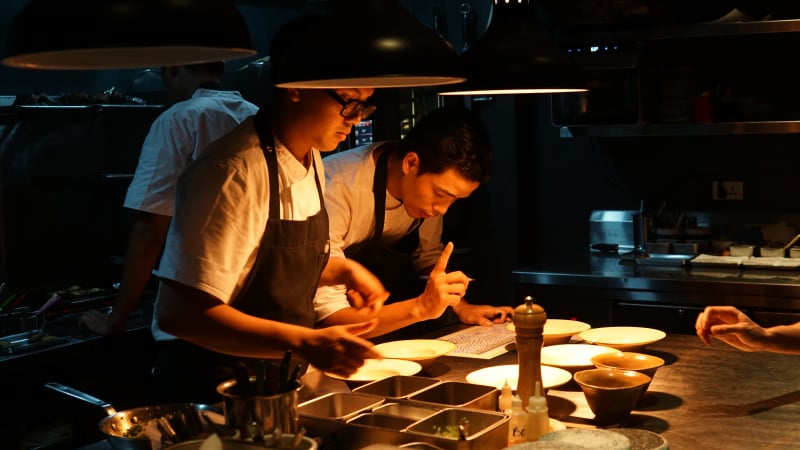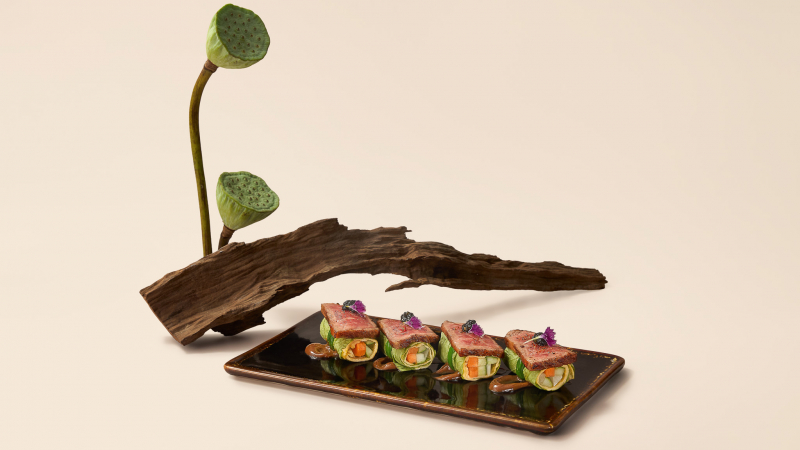Famous for its characteristic mild climate, romantic drizzles, and a rich history with a long-standing monarchy and countless iconic landmarks, England seems to have everything to attract tourists. However, when it comes to cuisine, a persistent stereotype persists: it's considered "bland" and unappealing. Is this just a misunderstanding, or are there deeper stories behind this often-scorned flavor?
Dishes with intriguing names like "bubble and squeak" (a dish of stir-fried leftover vegetables with mashed potatoes), "spotted dick" (steamed pudding with raisins), or "rumbledethumps" (a mixture of mashed potatoes, cabbage, and onions) frequently receive blunt criticism. To the point that if you search "what is the national dish of England?" on Google, the answer will be "chicken tikka masala"—an Indian-style chicken curry, supposedly developed in England in the 1960s by Bangladeshi immigrants. This further reinforces the image of British cuisine relying on the diversity of other cultures.
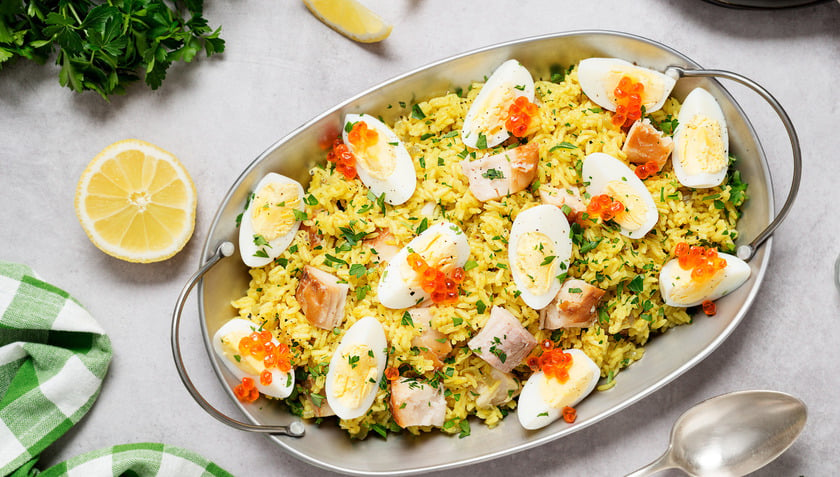
Popular British dishes like sautéed vegetables and mashed potatoes, and steamed pudding with raisins, are often criticized for being bland and lacking distinctive flavors.
Beyond direct comments, British cuisine has become the subject of countless memes on social media. One of the most widely circulated humorous images is the meme: "Conquered a quarter of the world with spices but used nothing." The deeper meaning behind this statement alludes to the history of the British Empire, which established numerous colonies around the world, controlling the supply of rare spices and reaping enormous profits. Although somewhat exaggerated, this meme accurately reflects how many people around the world perceive the "blandness" of British dishes.
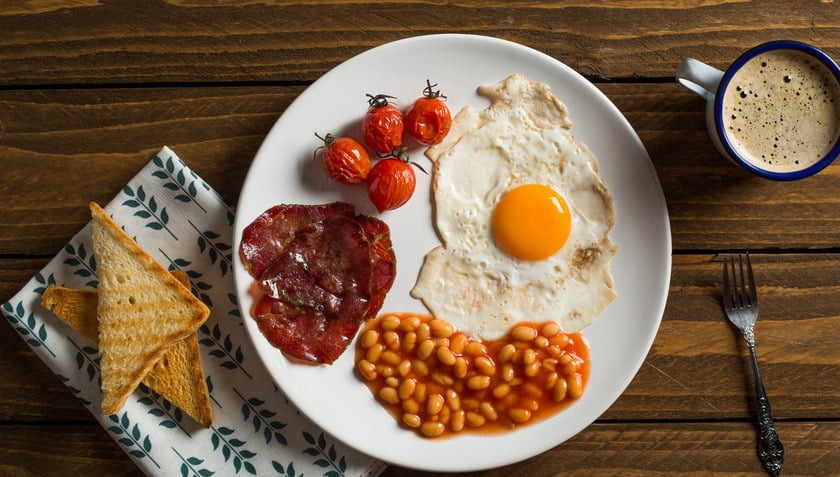
British cuisine receives many reviews for being bland and lacking appeal.
But is this the inherent nature of British cuisine? According to Manchester's Finest, during the Middle Ages, British cuisine had a golden age, highly regarded globally, especially for its roast meats. Roast beef was even hailed as the best dish in the world. However, things began to change dramatically during World War II in the 1940s. A harsh food rationing system was implemented, severely restricting sugar, meat, and many other ingredients, transforming eating from a culinary experience into a mere act of survival.
The reputation of British cuisine was further damaged when American soldiers landed in Britain during the war. They openly criticized local dishes, and this view quickly spread, contributing to a negative perception of British cuisine in the minds of the international public.
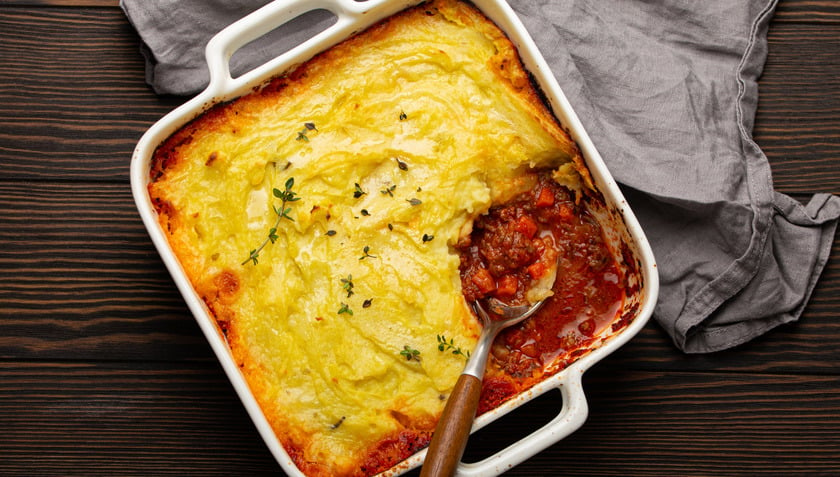
The reputation of British cuisine was further damaged when American soldiers arrived in Britain during the war. They openly criticized local dishes, and this view spread widely.
Dr. Lindsay Neill, Senior Lecturer in Tourism Management at Auckland University of Technology, explains that traditional British cuisine is often perceived as "overcooked, heavy, bland, with all the colors boiled away." He even shared a personal story about his aunt boiling cabbage for four hours, leaving a "haunting smell" that persists to this day. "Overcooking is not a cuisine," he emphasizes, arguing that eliminating the habit of overcooking would address many of the complaints about British food.
The root cause of this "overcooking" habit stems from historical context. In the past, the English were often poor, meat and fish were not readily available, and refrigeration was lacking, forcing them to cook food thoroughly to ensure safety. This outdated habit still influences home cooks today, even though cooking skills have improved significantly.
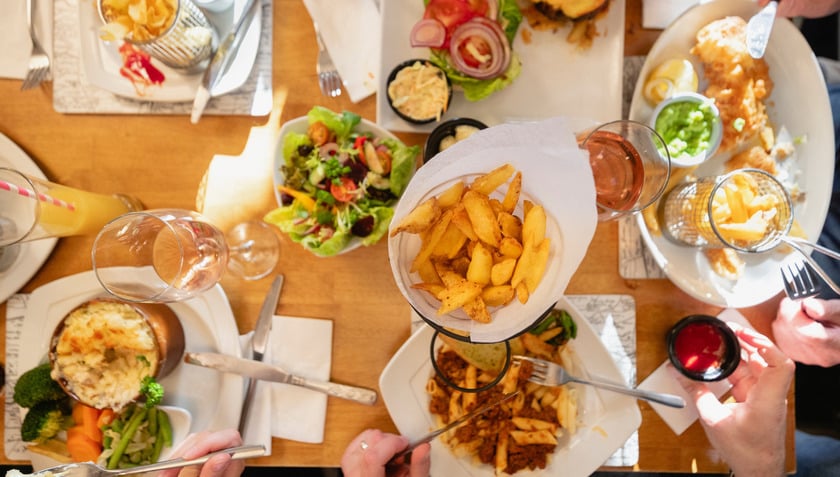
In the past, the English were often poor, meat and fish were not fresh, and they didn't have refrigerators, so they had to cook them thoroughly. This habit has influenced home cooks, even though cooking skills have improved considerably today.
However, Dr. Neill also pointed out a key issue: many other countries, like France or China, have also experienced periods of poverty but have still developed rich culinary traditions. He explained that cuisine is profoundly influenced by both abundance and scarcity. Britain, with its abundance of cattle and sheep, uses them extensively, even the less desirable parts like offal, leading to dishes like "black pudding." Meanwhile, Asia possesses a wealth of local herbs and spices, creating a diverse and explosive array of flavors.
When meat became less scarce and people had more disposable income, they began to seek out exotic, spiced dishes instead of a diet heavy on meat or organ meats. Mylam Sloan, owner of The Patriot pub in Devonport, also argues that Britain's "down-to-earth" culture has influenced its ability to market food. The British pride themselves on their hard-working roots and simple culture, which implicitly influences how they prepare and present their dishes. He frankly shared that incompetent chefs tarnished the reputation of British cuisine, especially in the 1980s when "nobody knew how to cook" and people relied only on simple cookbooks.

While French cuisine benefited from King Louis XIV's "greatest marketing campaign in the world" in the 17th century, when he established lavish palaces and promoted the idea that everything best should be French – from fashion to food, making French culture a symbol of the upper class – British cuisine lacked a similar "launchpad." This made French escargots far more appealing than British frozen eel.
Despite the global stereotype of British cuisine lacking appeal, many talented young chefs are working tirelessly to change that. Tommy Banks, the youngest chef in Britain to earn a Michelin star, has used his family farm to create sophisticated, modern dishes that are deeply rooted in local culture.
Alongside this, renowned names like Gordon Ramsay and Jamie Oliver are also making significant contributions to enhancing the image of British cuisine on the international stage. Time will tell whether these efforts can change the world's perception and restore British cuisine to its past glory.

 VI
VI EN
EN





